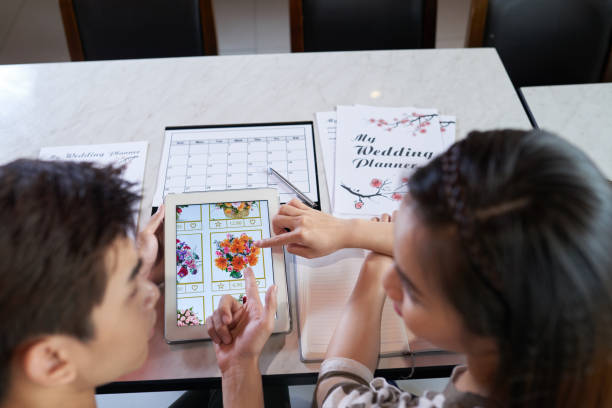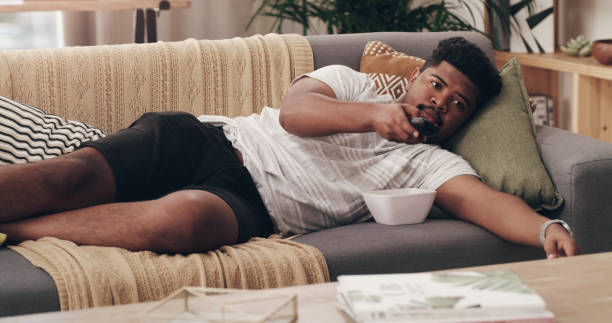In the realm of masculinity, myth often overshadows reality, perpetuating stereotypes that confine individuals within rigid frameworks. These myths, deeply ingrained in cultural narratives, dictate behaviors, expectations, and even self-identity. Yet, beneath the surface lies a reality that defies simplistic categorization. Modern masculinity is a mosaic of diverse experiences, emotions, and expressions. It encompasses vulnerability, empathy, and the capacity for introspection, qualities often sidelined in conventional depictions. Moreover, the intersectionality of race, class, sexuality, and other identities adds layers of complexity to the discourse.
Through critical examination and introspection, we unravel the intricacies of modern masculinity, dismantling misconceptions and embracing authenticity. By confronting myths with reality, we foster a more inclusive and nuanced understanding of gender. And also empower individuals to navigate their identities free from the constraints of outdated norms. In this exploration, we embark on a journey toward redefining masculinity, honoring the diversity of human experience and forging pathways toward genuine connection and mutual respect.
As we traverse through the landscape of gender dynamics, the portrayal of masculinity remains a subject of intense scrutiny and debate. “Myth vs Reality: Unmasking Misconceptions of Modern Masculinity” delves into the complex tapestry of societal constructs, shedding light on the discrepancies between perception and truth. Here are some of the common instances that shed light on misconceptions about ‘Masculinity’.
Men Lack Interest In Planning Their Wedding, An Age Old Myth

The commonly held assumption that a wedding primarily revolves around fulfilling the desires of the bride while the groom merely plays a supporting role. This fails to acknowledge the aspirations and interests of both partners. Contrary to this misconception, men too can harbor dreams of their wedding day. They can envision it as a significant milestone in their lives. It’s essential to recognize that marriage is a union of equals, where both individuals contribute to and partake in the celebration of their commitment. Thus, rather than relegating the groom to a passive participant, it is imperative to acknowledge his desires and preferences regarding the wedding arrangements.
Ultimately, a wedding ceremony should reflect the shared vision and aspirations of both partners. This ensures that each feels equally cherished and involved in the celebration of their love and commitment.
Breaking The Bubble About Men Being A Couch Potato

If you happen to be an enthusiast of classic television programs or timeless movies, the term ‘Couch Potato’ probably resonates with you. This iconic character archetype is often portrayed as indolent. Often indulging in copious amounts of ale, and scarcely stirring from the comfort of their couch stationed in front of the television screen. Not to forget their unwavering devotion to sports. Curiously, the media persistently perpetuates this caricature of fathers. Despite the fact that very few real-life men fit this mold. The pervasive depiction of such figures on screen may inadvertently cultivate a distorted perception among impressionable young boys. While implying that this portrayal encapsulates the essence of genuine masculinity and fatherhood. It instates a notion that could potentially sow seeds of misconception and detriment in their developing worldview.
Consequently, it becomes imperative to critically examine the ramifications of such misrepresentations and advocate for more diverse and realistic portrayals that reflect the multifaceted nature of fatherhood and masculinity in contemporary society.
A Myth About Bad Dads

One of the most frustrating myths about manhood is the idea that men can’t be good parents. This misconception comes from old-fashioned beliefs that say fathers are only there to please their partners. But in reality, most men are dedicated fathers who take care of their children with love and commitment. When men look after their kids, it’s not just babysitting, it’s being a caring and involved father, something many men strive for. Labeling paternal involvement as mere babysitting undermines its importance.
Fathers play a crucial role in their children’s lives through daily acts of care, guidance, and emotional support. It’s time to challenge these outdated stereotypes that belittle fatherhood and instead recognize and support all men who embrace their roles as loving parents.
Multitasking Is impossible For Men

The idea that men lack the capacity to multitask is fundamentally flawed and rooted in myth. Gender, in no way, dictates an individual’s aptitude for managing multiple tasks concurrently. Indeed, numerous men demonstrate adeptness in handling simultaneous tasks. They often surpass the proficiency of many women in this regard. The intricate juggling act of balancing professional commitments, familial obligations, and maintaining a vibrant social life exemplifies the essence of multitasking. Consider the scenario wherein a man diligently strives to fulfill various roles and responsibilities. Striving to ensure the contentment of those around him, all while contending with the burdensome weight of baseless gender stereotypes.
It’s a testament to resilience and capability, debunking the fallacious belief that multitasking prowess is contingent upon gender. Thus, it’s imperative to challenge such misconceptions, fostering an environment where individuals are recognized and celebrated based on their merits and capabilities, irrespective of gender.
Mental Health Issues Don’t Exist For Men

Global assumption that mental health issues don’t exist for men is not only inaccurate but also harmful. Men, just like anyone else, can and do experience mental health challenges. Dismissing or denying their struggles only perpetuates stigma and prevents them from seeking the help they need. Instead, it’s crucial to recognize that mental health is universal and can affect individuals regardless of gender. By acknowledging men’s mental health struggles, we can create a supportive environment where they feel comfortable seeking assistance without fear of judgment or ridicule. Encouraging open conversations about emotions and mental well-being is essential for fostering healthier attitudes and behaviors among men. Through education, awareness, and destigmatization, we can discard the notion that mental health issues are exclusive to certain genders.
Every person deserves access to resources and support to address their mental health concerns, irrespective of societal expectations or stereotypes. Let’s challenge the misconception that men are immune to mental health issues and work towards a more inclusive and compassionate approach to mental health care.
Myth Revolving Around Men And Fruity Drinks

Men don’t like fruity drinks overlooks the diverse preferences within the male demographic. While some men may indeed prefer beverages with stronger or more savory flavors. It’s a sweeping generalization to claim that all men share this sentiment. In reality, taste is subjective and varies widely among individuals regardless of gender. Many men enjoy fruity drinks for their refreshing and flavorful qualities. Whether it’s a tropical cocktail on a sunny beach or a crisp fruit-infused craft beer, the appeal of fruity beverages transcends gender stereotypes. Furthermore, cultural influences, personal experiences, and social contexts all play significant roles in shaping individual beverage preferences. Dismissing fruity drinks as exclusively feminine not only perpetuates harmful gender norms but also limits the freedom of individuals to enjoy a wide range of flavors without stigma.
In a society that increasingly celebrates diversity and inclusivity, it’s essential to recognize and respect the varied tastes and preferences of all individuals, regardless of gender. Ultimately, enjoying a fruity drink should be a matter of personal choice and pleasure, free from the constraints of outdated stereotypes.
He Isn’t A Man If He Gets… Scared?

Men, like anyone else, experience fear in various forms and situations. Whether it’s the adrenaline rush before a daring stunt, the nervousness preceding a significant presentation, or the primal fear triggered by danger, men confront fear just as intensely as anyone else. Fear is not a sign of weakness but a natural response ingrained in human biology. Men may fear failure, rejection, or the unknown, just as they may fear physical harm or emotional vulnerability. Acknowledging and managing fear is a display of strength, not a denial of masculinity. Often, men navigate fear differently, drawing on courage, resilience, and determination to confront challenges head-on. They harness fear as a catalyst for growth, pushing beyond limitations to achieve their goals.
The stoic façade often associated with masculinity may mask inner anxieties, but beneath the surface, men grapple with fear like all humans, seeking support, understanding, and strategies to overcome it. Breaking free from stereotypes allows men to embrace their full emotional spectrum, fostering healthier relationships and personal fulfillment.
They Aren’t Fond Of Kids

To claim that men universally dislike kids would oversimplify a nuanced reality. While some men may struggle with childcare or feel uncomfortable around children, many others embrace fatherhood, mentorship, or simply enjoy interacting with kids. Cultural expectations and individual experiences shape attitudes towards children. Some men may prioritize career or personal pursuits over parenting, leading to a perceived disinterest in kids. However, countless fathers actively participate in raising their children, displaying affection, guidance, and involvement in their lives. Additionally, many men find fulfillment in roles such as teachers, coaches, or volunteers, where they engage positively with children.
Stereotyping men as disliking kids overlooks the diverse spectrum of masculine identities and the multitude of factors influencing individual preferences and behaviors. It’s essential to recognize and celebrate the varied ways in which men contribute to the lives of children, whether as caregivers, role models, or supporters, rather than perpetuating a simplistic and inaccurate notion of universal disdain.
Men Hardly Get Mistreated By Women Is A Myth

Claims that men hardly get mistreated by women oversimplify a complex issue. While societal norms may portray men as less susceptible to mistreatment, the reality is multifaceted. Instances of mistreatment can manifest in various forms, ranging from verbal and emotional abuse to physical violence. Dismissing these experiences diminishes the validity of men’s struggles and perpetuates harmful stereotypes. In relationships, power dynamics can lead to men feeling trapped or powerless in abusive situations. Women, like men, can exert control through manipulation, coercion, or violence. Additionally, societal expectations often pressure men to remain silent about their experiences, fearing ridicule or disbelief.
Moreover, workplace dynamics may also contribute to mistreatment. Discrimination, harassment, and unequal treatment based on gender can negatively impact men’s well-being and professional opportunities. These experiences, though less discussed, are nonetheless significant and warrant attention.
Myth Is That Men Lack Maturity

Men often exhibit a deficiency in maturity, evident in their reluctance to take on responsibilities or make decisions with foresight. They may prioritize immediate gratification over long-term goals, indulging in behaviors that reflect immaturity rather than wisdom. This reluctance to grow up can manifest in various aspects of life, from relationships to career paths. In relationships, immature men may struggle with communication, unable to navigate conflicts or express their emotions effectively. They may also shy away from commitment, fearing the responsibilities that come with it. In the professional sphere, immature men may struggle to advance in their careers due to their inability to handle pressure or collaborate effectively with colleagues.
This lack of maturity can hinder personal and professional growth, limiting opportunities for self-improvement and success. However, it’s important to note that maturity is not solely determined by gender, its a myth. And individuals of any gender can struggle with this aspect of development. By recognizing the importance of maturity and actively working towards personal growth, individuals can overcome these challenges and lead more fulfilling lives.
Men Don’t Cry

The myth that “men don’t cry” perpetuates harmful stereotypes and undermines emotional well-being. Suppressing emotions, including tears, can lead to internalized stress and psychological strain. Encouraging men to express their emotions openly fosters healthier relationships and self-awareness. By embracing vulnerability, individuals cultivate empathy and strengthen connections with others. Dispelling the stigma surrounding male tears promotes a more inclusive and compassionate society. Men, like all human beings, experience a range of emotions, and crying is a natural response to sorrow, joy, frustration, and relief. Acknowledging and validating these feelings is essential for personal growth and mental health. Rejecting the outdated notion that men should remain stoic and unemotional allows for authentic expression and genuine connections.
In a world where emotional intelligence is increasingly valued, embracing tears as a universal language of human experience enriches our understanding of ourselves and each other. Let us champion a culture that celebrates emotional authenticity and supports individuals in embracing their full range of feelings, regardless of gender norms.
–
In conclusion, “Myth vs Reality: Unmasking Misconceptions of Modern Masculinity” illuminates the multifaceted nature of gender identity. By challenging ingrained myths and embracing diverse realities, we pave the way for a more inclusive and authentic understanding of masculinity. Let us continue this journey of introspection and dialogue, forging a society where individuals can express themselves free from the constraints of outdated norms, fostering genuine connection and mutual respect.